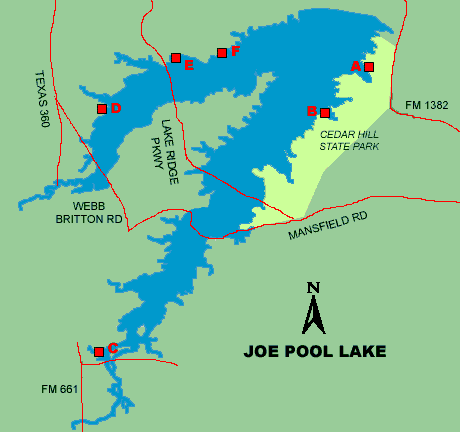There is a controversy between the Texas Railroad Commission and the US Army Corps of Engineers that is being followed closely by many Texas oil and gas attorneys and mineral owners. The Texas Railroad Commission is the state’s oil and gas regulator, and last year it bumped heads with the U.S. Army Corps of Engineers concerning whether the Corps has the authority to implement rules about where oil wells and injection wells can be drilled. The dispute surrounds the Joe Pool Lake, located in Tarrant County, Dallas County and Ellis County, and specifically whether drilling and injecting should be permitted within a certain distance of the dam.
Injection Wells Linked to Increases in Seismic Activity
There have been claims asserted in some circles that fracing or the use of injection wells to dispose of waste water has been linked to an increase in seismic activity near drill sites. The Corp recently obtained a study concerning the impact induced seismic activity could have on the structural integrity of the Joe Pool Lake dam. The study concluded that with respect to production, a 5,000-foot standoff distance — which is slightly larger than the one set by the Army Corps — had little effect on subsidence, or caving and settling, at the dam. In fact, the study did not recommend any change in the current ban area. Somehow, despite the study’s conclusions, the Army Corps is concerned that drilling within four thousand feet of the Joe Pool Lake dam or hydraulic fracturing within five miles of the dam could increase the risk of man-made earthquakes in the area, which could in turn structurally damage the dam. (There is already a drilling ban in effect within three thousand feet of the dam). The expansion of the ban area would encompass land from the cities of Grand Prairie, Arlington and Dallas.
Corps Imposes Drilling/Fracing Ban, Railroad Commission Challenges the Ban
Due to the Corps’ fear of man-made seismic activity too close to the dam due to drilling and injection well activities, the Corps imposed a drilling ban at the end of March 2016 that prohibits drilling within four thousand feet of the dam and injection well activities within five miles of the dam.
While the Corps’ actions may be protective in nature and well intended, the Texas Railroad Commission is not certain that the Corps has the authority to implement such bans and restrictions on the drilling activities of companies with the appropriate state permits. Kimberly Corley, who is the Executive Director for the Texas Railroad Commission, penned a letter to the Corps, inquiring about the restrictions imposed by the Corps’ rule and challenging the Corps’ authority to make such regulations. Specifically, the Texas Railroad Commission contends that the Corps failed to consult the Texas Railroad Commission when preparing this rule, and did not go through a formal rule-making process before imposing the ban.
Will It Be A Showdown?
There are a number of problems with the Army Corps position. First, regulations by government agencies are supposed to be published in the Federal Register and then a period is set aside for public comment before those regulations become final. The Army Corps proposal may be illegal because they failed to do that. Secondly, there is little to no scientific evidence that fracing or injection wells cause earthquakes, and so the Army Corps may be basing its proposed rules on unfounded allegations rather than real science. Third, Texas has a state agency whose sole mission is the regulation of oil and gas drilling. The Army Corps proposals appear to be a grab to usurp that authority. Finally, oil and gas companies have executed leases with mineral owners in this area and those mineral owners are individuals who depend on the income represented by those royalties. The Army Corps proposal completely ignores their rights.
XTO Energy currently has three producing wells that are more than 17,000 feet from the dam, but its pad site is within 3,000 feet. The wells have produced without incident and operate in full compliance with all state and local regulatory requirements, according to a spokesperson for XTO.
.
 Texas Oil and Gas Attorney Blog
Texas Oil and Gas Attorney Blog

